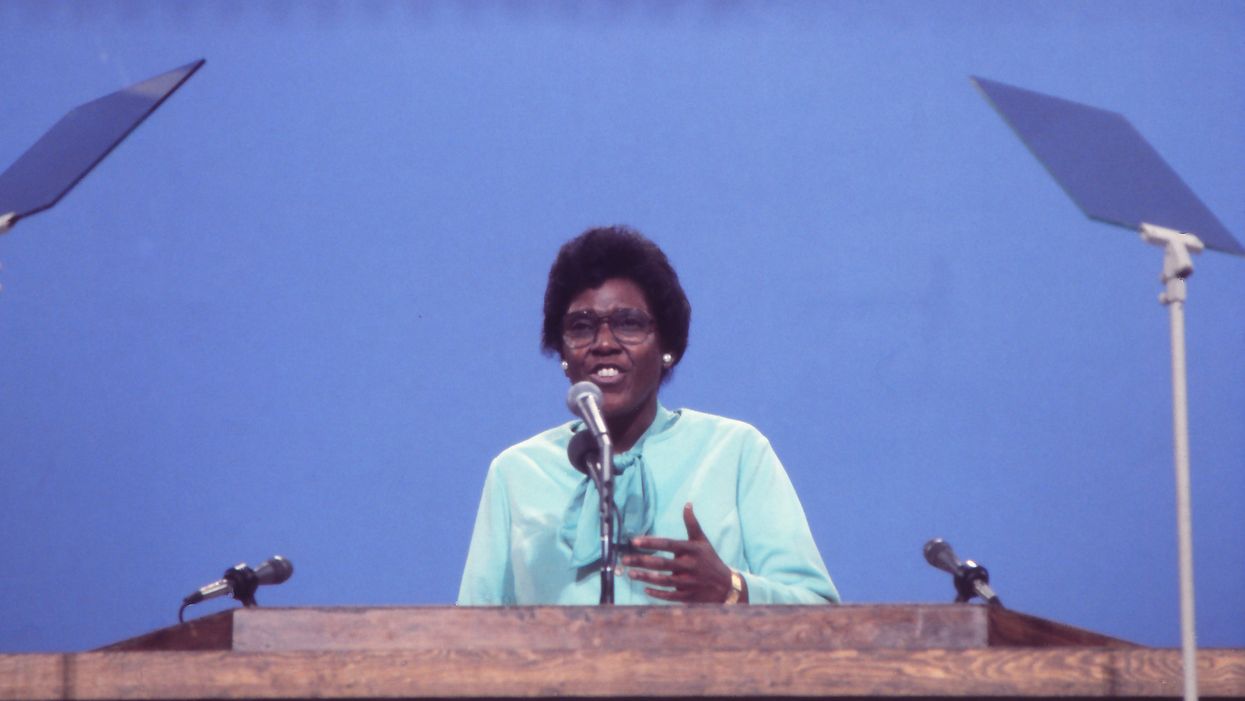Loge is an associate professor of media and public affairs at George Washington University. He edited "Political Communication Ethics: Theory and Practice " ( Rowman & Littlefield),a textbook being published next month.
"If men were not apart from one another," the American literary theorist Kenneth Burke wrote a half-century ago, "there would be no need for the rhetorician to proclaim their unity."
Apartness can feel like America's social and political condition. We live, eat, work, pray and vote apart. We rely on different sources for news that report on different issues from different perspectives — and that often rely on different facts.
This condition is not new. In 1976, Barbara Jordan told delegates to the Democratic National Convention that Americans are "a people in a quandary about the present. We are a people in search of our future. We are a people in search of a national community." Jordan, then a House member from Houston and the first African American as well as the first woman to give the convention keynote address, went on to say that "We are a people trying not only to solve the problems of the present ... but we are attempting on a larger scale to fulfill the promise of America." Her words still ring true.
Suggested solutions to these challenges often include an emphasis on civil discourse, a commitment to listening to those with whom we disagree, and more actively engaging the civic sphere.
I would add that candidates and elected officials ought to embrace the rhetoric of a humble civil religion.
A lot of our political coming apart makes sense. Many feel forgotten or ignored, and many have been actively excluded from the national conversation. Absent a narrative that makes everyone part of a larger positive whole, these groups can make sense of their position in ways that glorify separation rather than unity.
Our politics has become, in popular parlance, tribal. The challenge is finding a rhetoric that binds us together. As Jordan put it in that convention speech, the question is how we can "fulfill our national purpose, to create and sustain a society in which all of us are equal."
One answer is a humble civil religion that recognizes we are moving from a flawed but optimistic place toward a more perfect union — and that we can only do so together. We should "face up to unpleasant truths about ourselves," as the philosopher Richard Rorty put it two decades ago, "but we should not take those truths to be the last word about our chances for happiness, or about our national character. Our national character is still in the making."
Popularized by Robert Bellah in 1967, civil religion is a coherent putting together of who we are, where we came from and how we should behave next. In a 2017 essay for the online journal "Religion & Politics," John D. Carlson described civil religion as a "collective effort to understand the American experience of self-government in light of higher truths and through reference to a shared heritage of beliefs, stories, ideas, symbols and events." It is a story about ourselves, which we tell ourselves.
There is a lot left out of this story to be angry about. Thomas Jefferson, who wrote the phrase "all men are created equal," owned slaves. The original demand for religious freedom excluded Roman Catholics. We forced Native Americans from their lands or killed them. During World War II we rounded up Japanese Americans and put them in camps.
A lot of people have been treated brutally because of their language, faith, skin color, sexual identity and more. Our United States has been built on a lot of enforced division.
Further, a rhetoric of civil religion can be dangerous. People may feel free to do whatever seems most advantageous or expedient in the moment, no matter how cruel or unjust, because they claim to "have God on their side."
These serious challenges need not doom the effort. At the conclusion of his 2017 book. "American Covenant: A history of civil religion from the puritans to the present," Philip Gorski praises a civil religion that doesn't "confuse democracy with empire." In drawing on Langston Hughes' 1936 poem,"Let America Be America Again," Gorski argues a positive civil religion strives for a "free people governing themselves for the common good." Such a "righteous republic," he says, "demands that the political community protect the weak and downtrodden from the high and mighty" and also has an "egalitarian ethic."
In his "Losing our Civil Religion" piece, Carlson argues that a positive civil religion has four important characteristics. First, it "affords a model for forging consensus based upon founding principles that transcend differences in ethnicity, race, gender, religion, and political party." Second, "American civil religion gives voice to moral convictions and values beyond crude economic and political interests." Third, there is a "propensity to instill humility." Finally, it "propounds universal principles that entail a sense of purpose and engagement in the world."
Such a civil religion, to paraphrase Abraham Lincoln, worries less about the Lord being on America's side than it does about America being on the side of the Lord.
Our politics, often worthy of praise and full of promise, has stumbled. Our failures have become rhetorical hooks on which short-sighted and selfish political actors hang our identities and pit us against each other. Honest and fair citizens are abandoning public spaces and leaving those spaces to thugs and ideologues.
We need to be better than our division. We need to acknowledge our past and move together into our future. As Rorty wrote, "You have to be loyal to a dream country rather than to the one in which you wake up every morning."
Those who compete for our political attention can encourage us to work toward this dream country together — or we will continue to suffer the nightmare of it coming apart.



















